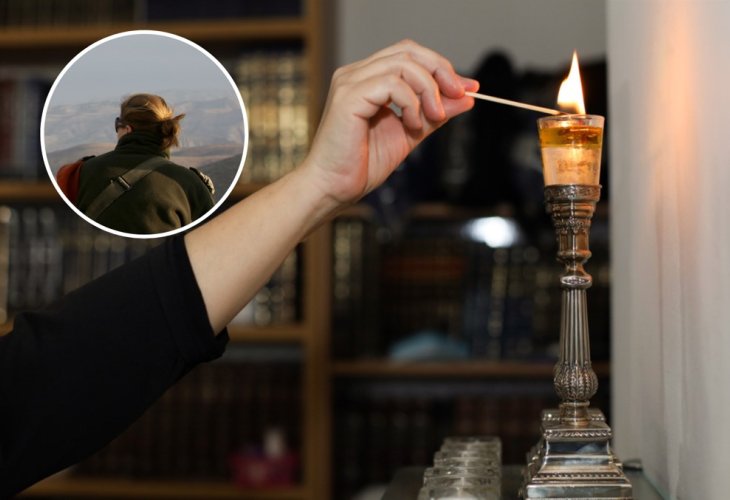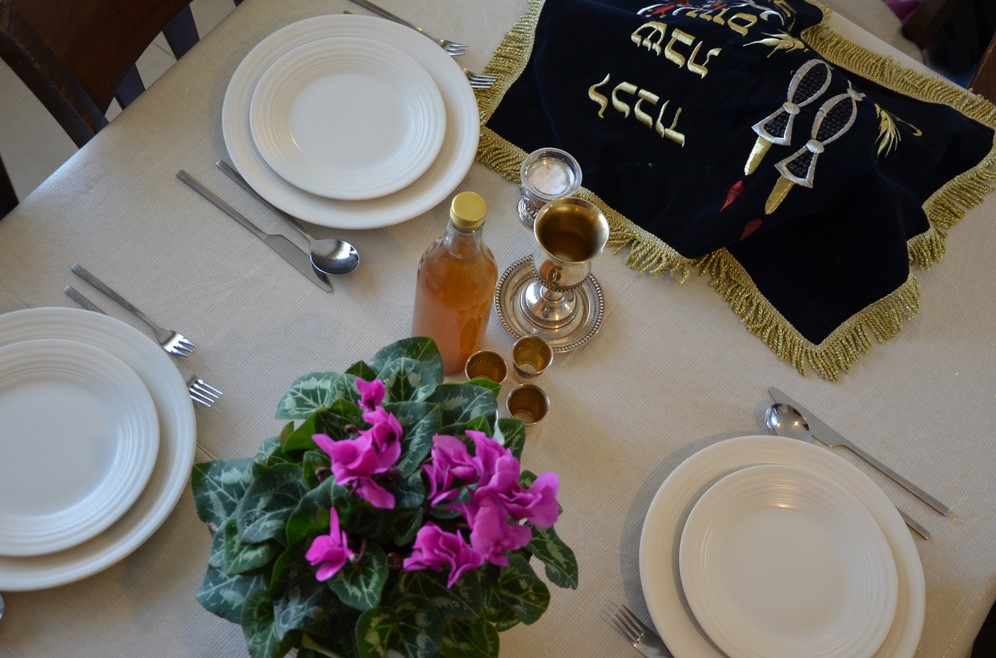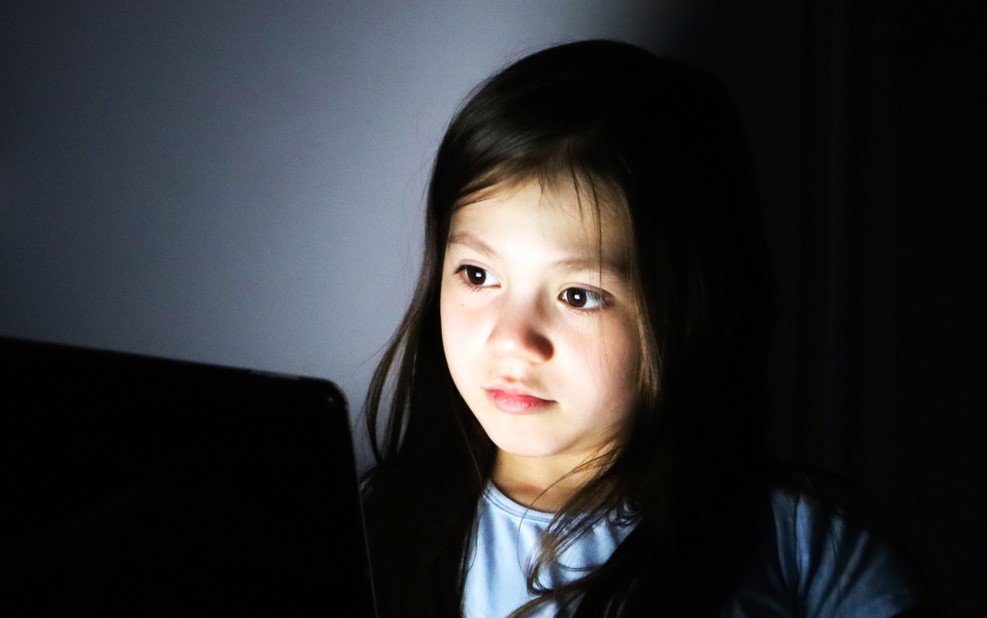When I Said Kiddush, My Husband Played Greek Songs, and On Shabbat He Took the Girls to the Sea
Chen, an officer in the IDF, began strengthening her Judaism but faced resistance from her husband and her workplace, which couldn't grasp the changes she was undergoing. Until everything miraculously turned around.
 (Background: shutterstock, Circular image: Anna Kaplan / Flash90, Illustration)
(Background: shutterstock, Circular image: Anna Kaplan / Flash90, Illustration)"No one understood what was happening to me when I started returning to my faith, including myself," says Chen (full name withheld), a senior officer in the IDF. "I was forty years old, married, and a mother of two daughters. Until then, Judaism had no part in my life. Both my husband and I came from very secular families, never marking Shabbat in any way and celebrating holidays only symbolically. But about eight years ago, my father fell ill and passed away, leading to an unexpected transformation in my life."
Strengthening Through My Father
Chen's father was ill for a long period, and she found herself spending long hours caring for him. "My father wasn't always conscious, so I had time to browse the internet for articles or lectures that could strengthen me. This is how I first encountered Jewish lectures that greatly intrigued me. I was still distant from Judaism then, but one Friday we were informed my father was gravely ill, and I spontaneously decided to observe Shabbat for his recovery. The problem was, right before lighting the candles, he called asking me to be with him on Shabbat. I remember lighting the candles and then rushing to the synagogue to ask if I could drive on Shabbat since my dad requested it. The rabbi listened to me and surprisingly said, 'If you seek merits for your father's recovery, it's better to observe Shabbat and not travel.' This was the first time I understood the power of Jewish law and our commitment to it. I didn't travel that Shabbat, but right after it ended, I went to see him."
 צילום: shutterstock
צילום: shutterstockShortly afterward, Chen's father passed away, and she again sought lectures online to find strength during mourning and the shiva. "These lectures pierced my soul," she explains. "During the seven days, I tried wearing slightly longer clothes and occasionally opened a prayer book to pray. The people around me accepted it with tolerance, but when they saw I continued afterward, understanding turned to resentment. I heard many remarks from my mother, my husband, and all family members. No one understood what was happening to me, and I was so ashamed. I prayed in secret, and when I wanted to recite the Grace After Meals, I hid in the bathroom to do it. I hope Hashem forgives me; I truly didn’t know it was forbidden. Even Psalm readings, I did solely from the iPhone. Those around me thought I was browsing for pleasure, but the truth was entirely different."
Chen, as mentioned, was serving as an officer in the IDF, and there too she faced many challenges. "After a certain period, I felt I wanted to progress further and decided to observe the prohibition of physical contact," she notes. "But in the place I served, there were mainly men, and the interaction was inevitable, especially since I outwardly looked as before, with regular uniforms and no head covering, so no one could guess I was becoming observant."
"Initially, I failed the challenge and was very disappointed with myself. Afterward, I went into my office, cried to Hashem, and pleaded for help with this difficult trial. Over time, I found ways and tricks to disappear and avoid handshakes and touches. But apparently, Hashem wanted to test me, and during this period, the most senior officers in the IDF, a lieutenant colonel, and a colonel, came to our office. I greeted them; they wanted to shake my hand, but I avoided it. Later, I participated in a ceremony where Prime Minister Netanyahu came to inaugurate something new on our base. I was required to accompany him on the tour, and of course, he extended his hand for a shake. That was a moment I felt I couldn’t endure the shame any longer. I prayed silently in my heart, stepped back, and blended in with the crowd. Later, I thought that the fact that Hashem keeps increasing my challenges proves that he trusts me and sees my progress. This drew me closer to the Creator, and made me want to do only what pleases Him."
Where do you get this strength from? Surely, it requires tremendous mental effort!
"I really don't know. Hashem simply sent me the strength, he alone gave me the ability to overcome all these trials."
"I Understood What the Child Was Learning and Felt Terrified"
The next arena where Chen found herself dealing was her daughters' educational institutions when her eldest daughter began first grade at a secular school. "I'm quite an active mother, and during the month of Elul, I wanted to bring a rabbi to blow the *shofar* for the students, but as soon as I suggested it, all the mothers opposed me: 'Who approved a rabbi at school?' Some even objected: 'Why not bring a woman rabbi?' Then came Family Day, and the nonsense they taught my daughter that day crossed all boundaries. Later, in a nature class, they learned about the Seven Wonders of the World, and she came home with a picture of a statue. I asked her what it was, and she didn’t know, but when I contacted the teacher, she wondered, 'Don’t you know it's the statue of Jesus in Brazil?' At those moments, I felt terrified. I couldn’t bear to think these were the teachings my daughter was receiving at school."
"The moment I felt everything was at an end was when I accidentally arrived in the afternoon while the kids were in after-school care. The supervisor wasn’t in the class and allowed the children to open YouTube and watch whatever they wanted. When I saw the videos the boys and girls were watching together, I was horrified to my very core. The teacher saw my reaction and remarked, 'What will become of you? You’re guarding your daughter like she's a delicate flower.' But I already knew I had to cut all ties with the school. The problem was, my husband remained entirely anti-religious. He refused to hear about changing schools, and conflicts arose between us. When I made *kiddush* on Shabbat, he would play Greek songs, and when I wanted to have a meal, he would take the girls to his parents and leave me alone. My great miracle was that during these times, I was reading Rabbi Shalom Arush's book 'In All Your Ways' and learned to be grateful for everything. I kept saying 'thank you, thank you,' focusing on the fact that everything is from the Creator, and the people around me are just messengers."
 אילוסטרציה, צילום: shutterstock
אילוסטרציה, צילום: shutterstockBut regarding her daughters’ education, Chen notes she wasn’t willing to give up. "I prayed about it without stopping, at every possible moment I would cry out: 'Hashem, these are your daughters! Please ensure they learn in a place that teaches the values and educates them to the commandments.' But still, my husband wouldn’t hear of any change. He constantly argued that I was extreme, that nothing would happen to the girls if they learned about Christianity since we’re all human beings, and if I particularly wanted them to learn Judaism, I was welcome to do it at home."
Change Through the Pamphlets
For two years, Chen's eldest daughter studied at a secular school, and when she moved to third grade and her younger sister began first grade, Chen tried persuading her husband again, to no avail. "We registered the girls for the secular school and even bought uniform shirts," she recalls. "But not once did I despair. Every chance I could, I prayed to Hashem, asking for his help, and he heard my prayer," she says excitedly. "A day before the school year began, with the girls registered and their backpacks ready, my husband suddenly said: 'You know what? Fine, do what you want, I’ve had enough of this.' It exceeded all expectations. At that moment, I called and transferred the girls to a nearby religious school. They started studying there, and from that moment, the change was dramatic. They came home with knowledge and stories about the approaching Rosh Hashanah, hearing the *shofar*, and the Tashlich ceremony. They wanted themselves to bless the food and make *kiddush* on Shabbat. It didn’t stem from compulsion, but from great joy and excitement."

Meanwhile, something else happened, and Chen shares: "Among the lectures I listened to during that time were, of course, lectures from Hidabroot rabbis, so I frequently visited their channel and website. I also discovered their pamphlets, offering them for free to distribute to IDF soldiers. At that moment, I decided to take on the task of distribution on my base, and also reached out to friends on other bases for similar distribution efforts. Of course, I didn’t simply place the pamphlets in a pile, knowing they’d be discarded; I delivered them wisely and discreetly—coming early in the morning to leave some in the cafeteria, a few in soldiers’ collection points, another in the secretariat, and so on, before slipping away. Later, I’d pass by and see the pamphlets gone, proving that despite everyone’s opposition to Judaism, they were still interested."
"The most amazing thing that happened because of the pamphlets was that when there were extras, I’d take them home, and then I discovered, to my surprise, that my husband was reading them. Thanks to these pamphlets, my husband underwent an unbelievable transformation. He still doesn’t define himself as religious, but he no longer opposes the Jewish spirit I bring into the home. He observes Shabbat, makes *kiddush* every Friday night, and even told me he’s pleased that the girls study at a religious school, learn more about Judaism, and respect parents. Of course, there’s still a long road ahead, and challenges persist. But I feel a profound sense of private providence and guidance. Hashem is with me throughout the journey and manages the world in the most correct and precise way. All that's left for us is to strive to serve him truly and faithfully. May we merit it."
Call 073-2221388 or fill out details here, and receive 50 copies for weekly distribution to benefit the public.

